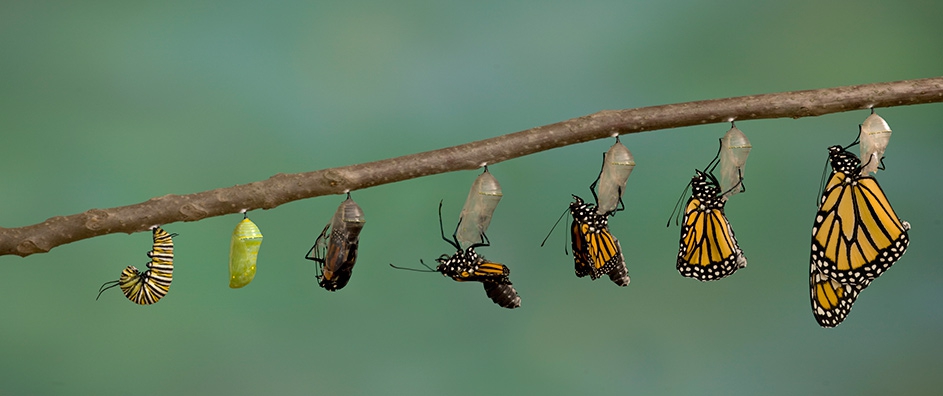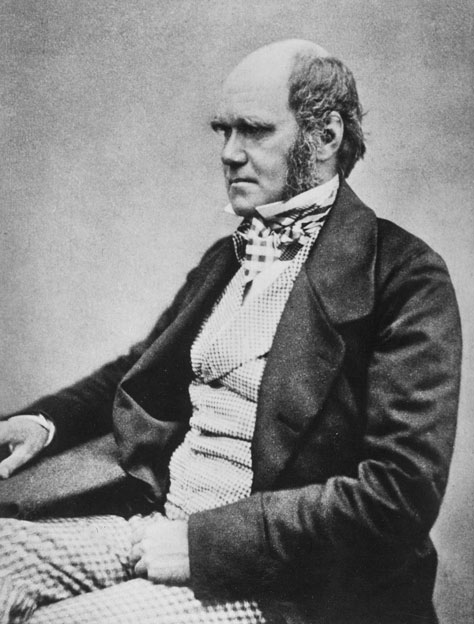The views expressed in our content reflect individual perspectives and do not represent the authoritative views of the Baha'i Faith.
The law of evolution is that the strongest survives! Yes, and the strongest, in the existence of any social species, are those who are most social. In human terms, most ethical…There is no strength to be gained from hurting one another. Only weakness. – Ursula Le Guin
Most people know the history of Darwin’s theory of evolution and its enormous impact on the world. We understand how the science of the 19th century powerfully changed people’s perceptions about religious belief, called past dogma into question and even challenged the prevailing wisdom about God.
But few people, unless they’re scientists themselves, understand what happened to scientific thinking post-Darwin, when successive researchers took a much more detailed, informed and knowledgable look at the great scientist’s conclusions about modification of species and the survival of the fittest.
In the 1930s and ‘40s, scientists generally agreed on several significant changes to Darwin’s original model, calling the new theory the modern evolutionary synthesis (or just the new synthesis). Their overarching concept took additional research information into account which Darwin didn’t have access to—from fields like genetics, anthropology, paleontology, botany and the relatively new science of ecology—and combined those findings into the multi-disciplinary view of evolution and survival of the fittest that science utilizes today.
This new synthesis incorporates some of Darwin’s ideas, but leans away from his original emphasis on the individual struggle for existence—and instead, strongly emphasizes the science of cooperation among organisms for mutual benefit. Rather than focusing on individual life forms—the single cell, for example—scientists now think much more in terms of entire natural populations. Those populations, whether in the plant, animal or human kingdoms, have a wide span of genetic diversity that benefits more than just the survival of the individual, but that works in a much bigger way to benefit the survival of the species. Where Darwin’s view focused on the development of the micro—the world of one cell, one bird or one turtle—the new synthesis focuses on the macro, which describes the entire, interdependent ecosphere of an organism’s community of life.
Many of these evolutionary discoveries took place at the Chicago School in the early part of the 20th century, where scientists like Frederic Clements first discovered that a group of plants can function as a “superorganism,” with each individual plant naturally benefiting and assisting each other. Clements’ work showed that living things all develop communities in a fixed pattern of successive stages; from their inception to a phase of exponential growth and then to a self-regulating state of equilibrium. Even individual cells grow this way, maximizing their growth until they reach the limits of their environments. Single organisms in that community are born, grow, mature, and die, but the community itself—if it remains healthy–continues to flourish and develop, becoming greater than the sum of its parts.
Scientifically, we now know that the survival of the fittest has a limited role in the growth and development of each living thing—and that every living thing also requires a community to flourish. This means the fittest individual in any living biome is often the one best adapted to live in its community.
This modern evolutionary synthesis, which emphasizes the role of a community of living things rather than the individual organism, strikingly resonates with the core principles of the Baha’i teachings. Baha’is believe that human beings, if they center their lives on the mental, intellectual and spiritual realities, can transcend the natural limits imposed on the physical world and its struggle for existence:
If the soul identifies itself with the material world it remains dark, for in the natural world there is corruption, aggression, struggles for existence, greed, darkness, transgression and vice. If the soul remains in this station and moves along these paths it will be the recipient of this darkness; but if it becomes the recipient of the graces of the world of mind, its darkness will be transformed into light, its tyranny into justice, its ignorance into wisdom, its aggression into loving kindness; until it reach the apex. Then there will not remain any struggle for existence. Man will become free from egotism; he will be released from the material world; he will become the personification of justice and virtue, for a sanctified soul illumines humanity and is an honor to mankind, conferring life upon the children of men and suffering all nations to attain to the station of perfect unity. – Abdu’l-Baha, Divine Philosophy, p. 120.
Man must exercise fellowship and love in order to prove that he is distinguished above the animal kingdom. If he engage in strife and warfare he is no better than the animal. Strife is an animal tendency, an attribute of nature, for nature is dominated by the law of the survival of the fittest, which ever causes enmity, rancor and warfare… Man must be educated according to the teachings of God in order that the natural or animal tendencies may be eradicated, and so that he may be enabled to acquire spiritual virtues, attractions of the conscience, fellowship and love. Nature is aggressive. Nature tends to oppression. Nature tends toward tyranny. Nature tends toward monopoly. These are natural tendencies that must be trained. Man should live in union, harmony and love, for the honor of man depends upon the intellectual possibilities overcoming natural susceptibilities.
Intellect judges according to justice, nature according to force. Intellect judges according to equity, nature according to aggression. Intellect judges according to solidarity, mercy and love. Nature, on the contrary, is governed by the law of the survival of the fittest, whereas the distinction of man is to be sanctified above such a law. Therefore the world of humanity should live as one, according to the law of love, for the honor of man is in the attainment of those virtues which constitute the image and likeness of God. This is the eternal honor of man. This is the sublimity of man. This is the life everlasting of man. – Abdu’l-Baha, quoted by Ella Cooper, from a talk given in San Francisco, October 12, 1912.

















Comments
Sign in or create an account
Continue with Googleor